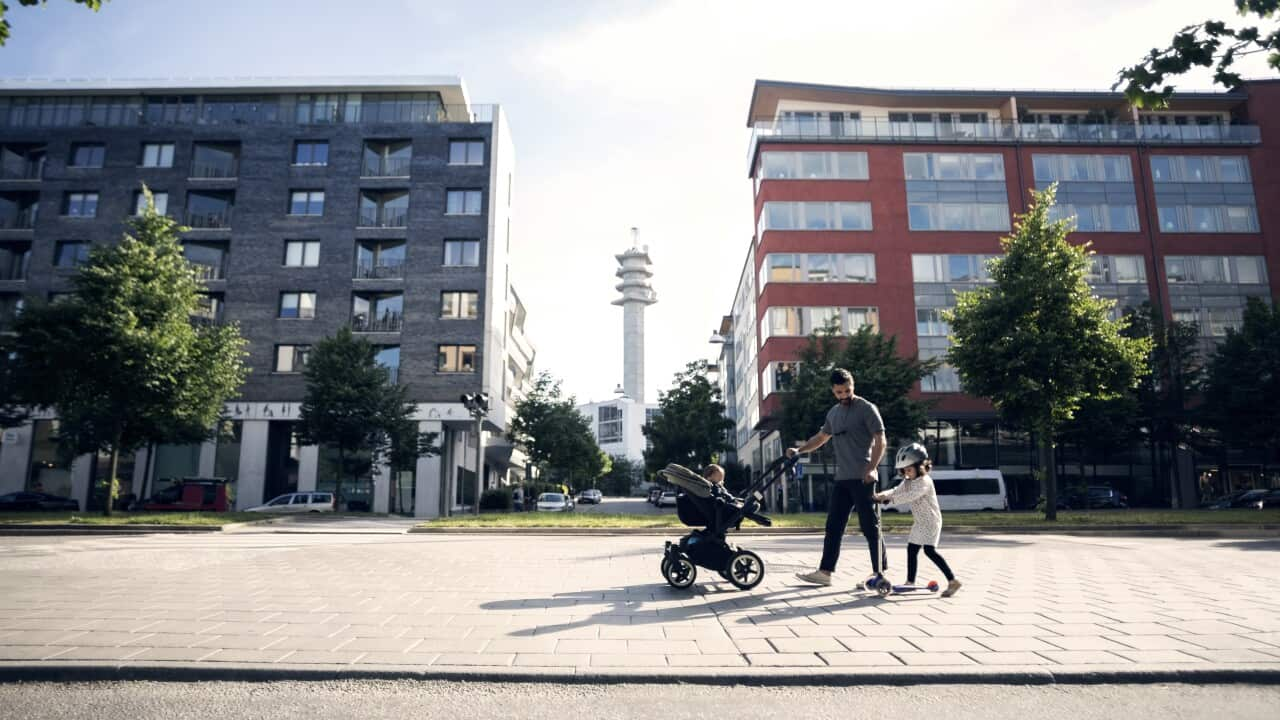Prime Minister Anthony Albanese has urged the Greens to support Labor's proposed housing legislation as two key elements face the Senate.
The next steps of the federal government's housing agenda — the Help to Buy and Build to Rent bills — are both up for debate this week.
After teaming up with the Coalition to block the latter bill in June, the Greens have continued to clash with the federal government on what the best solution for both renters and prospective homeowners would be.
They argue that the bills in their current form will drive up prices and give unnecessary tax breaks to property developers. While they remain open to negotiations, Greens leader Adam Bandt accused the government of a "their way or the highway" approach.
With the focus solely on the Senate this week, Housing Minister Clare O'Neil urged the Greens to "help us get this done".
Albanese similarly challenged the Greens to "get on with it".
"We could have been announcing 13,700 new homes six or eight months ago, had they not stood in the way of the legislation, and today, we could have been announcing round two rather than round one. Now they need to get on with it," he said.
So what's at the centre of the negotiating breakdown?
What is the help-to-buy scheme?
Labor's would support 40,000 eligible buyers with an equity contribution of up to 40 per cent for new homes, and 30 per cent for existing homes.
It aims to help lower and middle-income earners enter the housing market with a deposit as small as 2 per cent.
The Greens argue that the policy will drive up house prices as it will give extra money to first-home buyers who will ultimately be outbid by people with more capital at auctions.
At the 2022 election, the Greens also proposed a shared equity scheme. However, it was part of a larger policy to establish a public property developer that would build more affordable housing.
The minor party continues to advocate for the scrapping of , with the saved revenue to be set aside for public housing, and is pushing for a rent freeze and a cap on rents.
Will the help-to-buy scheme inflate house prices?
Yes, but marginally, according to independent economist Saul Eslake.
Eslake agrees that it will increase prices, but says the small footprint of the policy — targeting 40,000 people — ensures it won't be a drastic change.
"The fact that it's only a small percentage is a reflection of the fact that this scheme isn't going to help many people," he told SBS News.
"By contrast with first home owner grants schemes that might be extended to, say, a hundred thousand people a year … the impact is much more broadly based and obvious, at least this impact is going to be relatively small."
The Grattan Institute predicts the measure will increase house prices by 0.016 per cent or the equivalent of $113 for a $700,000 home.
What is build to rent?
The build-to-rent scheme aims to incentivise developers to build housing entirely for renting by offering tax concessions.
The bill also commits at least 10 per cent of the dwellings to affordable housing, priced roughly 25 per cent lower than the market rate.
Labor argues that boosting supply will alleviate some pressure, but Greens housing spokesperson Max Chandler-Mather says the scheme will only exacerbate soaring rents.

The Greens' housing spokesperson Max Chandler-Mather argues the government's build-to-rent scheme would only push rents up. Source: AAP / Esther Linder
The Greens demand 100 per cent of the stock built to be affordable and rent rises to be capped at 2 per cent every two years, however, this would affect the financial viability for developers.
Will renters benefit from build-to-rent?
Eslake disagrees with the Greens, stating that the measures will incentivise developers that otherwise would have had no desire to build renting stock.
He argues that not only will it bolster supply but having investors outside the 'bank of mum and dad' could have positive long-term outcomes for renter rights.
"Mums and dads invest in rental housing, not because they have any interest in being long-term builders and owners and managers of rental property, but rather in order to make capital gains to boost their retirement income off or to reduce their tax," he said.
"This is at least seeking to create a new class of investor in rental housing who will be more motivated to invest for long periods of time, who will be in less of a position to oppose measures that provide greater security of tenure and more rights for tenants."
He said that the Greens let "the perfect be the enemy of the good" and needed to meet the government halfway.
Do the schemes have bipartisan support?
With the Coalition opposed, Labor is relying on crossbench and Greens support to get the bills through the Senate.
The Opposition's finance spokesperson Jane Hume has expressed criticism that the policies won't help many Australians to own their own home.
"All that it will do is simply allow large corporates, and indeed the government, to own your home," she said on Monday.
"Now, most homeowners want to own it outright, and that's not what these bills will do."
However, crossbench senator Jacqui Lambie has echoed the prime minister's calls to get on with the job, and says she refuses to argue about something as vital as getting roofs over people's heads.
"I will not be stopping people out there and their children from having a roof over their head and having warmth during the winter. I won't be a part of that," she said.
"I want them to start. Nothing's ever perfect up here. And if the Greens continue to carry on that the way they are, with their stupid bloody demands because they don't want houses built, then let them wear that at the next election."














